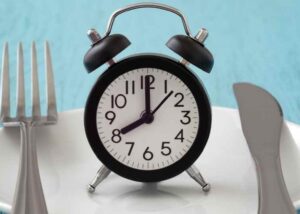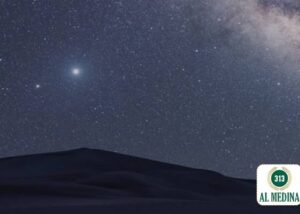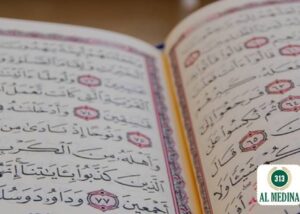Quran
Hadith
Islamic Text
Yes, there is a Hadith for worshipping on Eid night. However, it is a weak narration. Therefore, it must be narrated in a speculative and not definitive manner. As is the ruling with weak Hadith.
عَنْ أَبِي أُمَامَةَ، عَنِ النَّبِيِّ صَلَّى اللهُ عَلَيْهِ وَسَلَّمَ قَالَ: مَنْ قَامَ لَيْلَتَيِ الْعِيدَيْنِ مُحْتَسِبًا لِلَّهِ لَمْ يَمُتْ قَلْبُهُ يَوْمَ تَمُوتُ الْقُلُوبُ
Abu Umamah (May Allah Most High be pleased with him) narrated that the Prophet ﷺ said, ‘Whoever stands (in worship) for Allah (Most High) during the two nights of Eid, hoping for reward from Allah (Most high), his heart will not die on the Day when hearts will die.’ (Ibn Maja, 1782).
The Hadith above encourages worshipping on the nights of Eid. However, it is a weak Hadith. This does not mean that it should be rejected. Rather, the scholars of this science accept weak Hadith for Nafl actions (see link below for details).
” مَنْ قَامَ لَيْلَتي العِيدَيْنِ لِلَّهِ مُحْتَسِباً لَمْ يَمُتْ قَلْبُهُ يَوْمَ تَمُوتُ القُلُوبُ ” هكذا جاء في رواية الشافعي وابن ماجه، وهو حديث ضعيف رويناه من رواية أبي أمامة مرفوعاً وموقوفاً، وكلاهما ضعيف، لكن أحاديثَ الفضائل يُتسامح فيها كما قدّمناه في أوّل الكتاب. (الأذكار)
‘Whoever stands (in worship) for Allah (Most High) during the two nights of Eid, hoping for reward from Allah (Most high), his heart will not die on the Day when hearts will die.’ This is according to the narration of al-Shafi and Ibn Maja. It is a weak Hadith. It was narrated from Abu Umamah (May Allah Most High be pleased with him) as a Marfoo (Prophetic) Hadith and a Mowqoof narration (statement of a Sahabi), and both are weak. However, narrations regarding the virtue of actions are accepted (even if they are weak), as was mentioned at the beginning of the book. (Imam al-Nawawi, al-Adhkaar).
As mentioned by Imam al-Nawawi the Hadith in Ibn Maja is weak. In another book (al-Majmoo) he mentioned several narrations with similar wording and said they are all weak.
وَأَسَانِيدُ الْجَمِيعِ ضَعِيفَةٌ. (المجموع شرح المهذب)
All of the chains are weak. (Imam al-Nawawi, al-Majmoo).
Many scholars quoted Imam al-Nawawi when discussing the authenticity of this narration and agreed with his opinion. Imam al-Iraqi also considered the Hadith to be weak:
أخرجه بِإِسْنَاد ضَعِيف من حَدِيث أبي أُمَامَة. (المغني عن حمل الأسفار)
It was narrated with a weak chain from the Hadith of Abu Umamah. (Imam Zayn al-Deen al-Iraqi, Takhreej Ihyaa).
Some narrations of this Hadith may be very weak or even fabricated. However, that does not diminish this particular narration. Even if this Hadith was not authentic it would still be permitted to worship during the nights of Eid because it is generally recommended to worship during the night. However, it would not have been permitted to attribute particular virtue to the nights of Eid.
And Allah Most High Knows Best.
-Answered by Shaykh Noorud-deen Rashid (05.07.2022)
See also:
Using weak Hadith
See also video:






